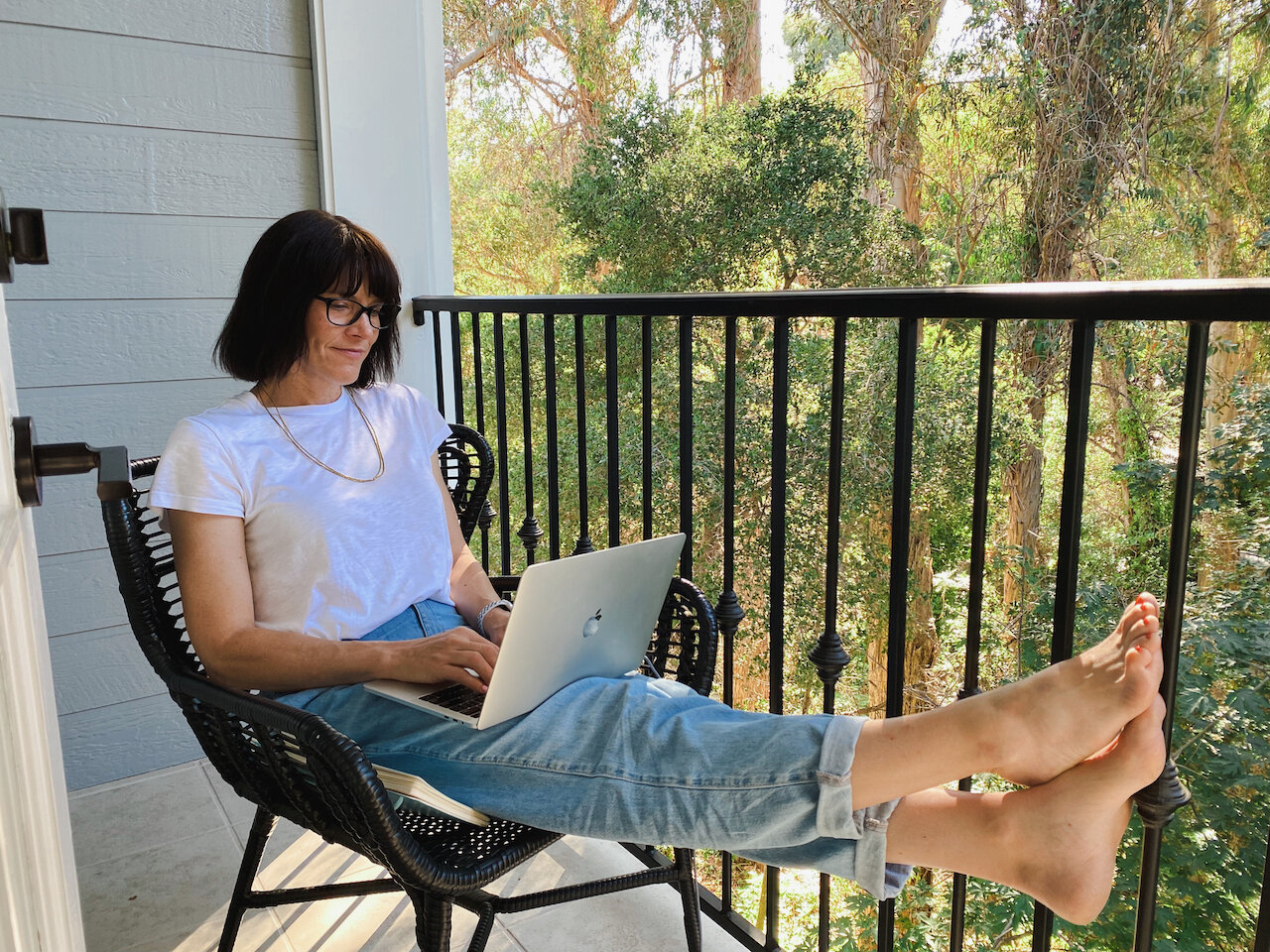Originally published Tuesday, 20 July 2021.
It wasn’t a conventional list—my list of things I fear. I didn’t write down my fear of certain places—the deep ocean, outer space, being trapped in a small area with no way out. Or my fear of things outside my control—Justin and my kids dying, my body getting older, my family not being happy. It was a list far less important. But it was interesting to me, and I felt compelled to write it all the same.
At the top of a clean journal page, I wrote, “Things I am Not Good At (So I am Afraid to Try)” It is a list of things I have feared doing because I’ve always assumed I won’t be good at doing them. A list of things perhaps trivial—and probably not life-changing. But it felt important somehow—empowering even—to write them down.

Ice skating; playing chess; hosting people last minute; learning a foreign language and trying to speak it to native speakers; offering my heart when I feel I have notice valuable to offer; surfing; golfing. . .(there is more, but you get the idea).
It was interesting to realize that a lot my life choices (not represented on that short list) have to do with whether or not I anticipate success. If I do that task, will I be able to achieve it? If I don’t, will people see me fail? If I’m good at it, what consequences will I have to face? And will anyone find out?
When I read my list to a friend last week, she observes, “Almost everything on your list is about performance.” And she’s right. My life has been built around my ability to perform, achieve, prove, control people’s perceptions of me. Such a small life—a life where fear of failing dictates what I do and don’t do.
This pride runs deep . . .
Recently, I went for a walk with a different friend who, years before, had given me some lovely decorative teaspoons. When she came over to my house for our women’s group a few weeks later, I was panicked that I had forgotten to take out the spoons she had given me. I wanted her to know I appreciated the gift by having them available for her to use for her tea.
“I have been loving using the spoons so much!” I told her as I went to the kitchen cupboard where I had placed them, still in their tidy gift box. I suggested she use them for her tea, and I eagerly handed her the box, thinking she would like that I had been using the spoons. (Because certainly I was the kind of friend who appreciated thoughtful gifts from my friends!)
The problem was that I had yet to open the box, which was taped, with each little teaspoon securely fixed to the back of the box with an (almost imperceptible) silver tie to hold it in place.
I had never used the spoons. She knew I had lied. Right in front of her. I was caught.
Um.
Mortified, I made a joke that I (conveniently) don’t remember now and quickly washed one of the spoons for her and led my friend into the front room to join everyone else. She sat there, with the spoon on her saucer, drinking her tea. We never spoke about it again.
Ever since the “Teaspoon Incident,” I couldn’t help but think about that moment each time my friend and I got together. It made me feel uncomfortable to not talk about it—but I also couldn’t imagine bringing it up; it was just too embarrassing.
Fast forward four years. Lots of walks together. Lots of conversations.
And then, a few weeks ago, God was definitely encouraging me to finally bring it up. And this is what He wanted me to know—and tell her: sadly, the problem wasn’t just that I had lied to my friend. It was that I was bothered about being caught in the lie. I cared less about my act of lying and more about her perception of me as a liar.
Wow.
So, near the end of one of our walks together, I confessed—not only to the lie itself, but also to the more insidious truth: I was less bothered about the lie—and how that made her feel—and more about her opinion of me.
Oh, help.
“I have something to confess to you.”
I apologized. I confessed. I asked for her forgiveness. And I shared with her the root of the sin, exposing the motivation for it. With my dear friend I felt Holy Spirit prompting me to share the reason for what I had done.
It was time to not hide. It was time to strip away all the deceit. It was time to stand before my friend with the sin unvarnished. It was time for shame to not be the boss of me.
With characteristic kindness and compassion—treatment I so appreciated but did not deserve—my friend responded, softness and sincerity in her voice: “Yes, I forgive you. I actually don’t even remember giving you those spoons.”
Oh, Jesus, you are so kind. And I am so hopeless without You.
The fear of people’s perceptions is a noose around my neck. It wants to convince me—this idol of pride—that I should fear what people think of me more than anything else. This fear keeps me in bondage—preventing me from living like my Father’s child, unafraid to take risks, unafraid to try new things, unafraid to fail.

So, with my new list of things I am afraid of—the things I am afraid to do because I don’t want people to see me fail—I have begun taking little risks—doing the things on the list, one by one. Justin has taught me chess and now we play regularly on Sundays, riding our bikes to a beer garden and sitting underneath leafy branches of trees. I am joining my oldest son this fall in learning German. (After years of Spanish, the true test will be, I know, in trying to speak it and not just read and write.) A friend of mine says we are going golfing (which I am trying to not freak out about). I have started sharing my heart more off-the-cuff, unscripted and vulnerable with strangers. (You can find videos of me doing that recently here and here.) And I hope to keep taking action on that list, with confidence and hope. Not because I am—or will be—good at the things. Not because they are things to achieve.
Rather, the list is an act of rebellion, a step towards healing and truth. It is what Justin, my husband, loves to call a “bold move.” I don’t want to live being afraid of failing anymore. I don’t want the fear of messing up, getting things right—and people’s perceptions—continue to have power over me.
Life should be rich and wonderful (and scary in the best way) and fun.
(Sharing this story with you might be on the list too.)
What role does fear play in your life? What is your heart telling you about it—and how to respond? I’d love to hear about it and pray for you!
With love,
Jennifer
This post appeared originally at jenniferjcamp.com








